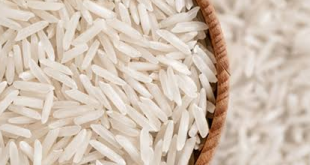We often think of food as simply fuel, something we consume to survive or satisfy hunger. But what many people don’t realize is that what you eat can significantly affect how you feel—not just physically, but emotionally and mentally as well. In a city like Lahore, where the culinary culture is rich and diverse, our eating habits reflect tradition, comfort, and even celebration. However, the connection between diet and emotional well-being goes much deeper than taste or tradition. There’s a growing body of scientific evidence showing how food interacts with our brain chemistry, hormone levels, and gut health—all of which play a crucial role in shaping our mood.
This isn’t just about avoiding junk food or eating greens. It’s about understanding the subtle, powerful ways in which daily meals impact mental clarity, emotional balance, and even long-term mental health. Whether you’re someone dealing with stress from a fast-paced urban life or just trying to maintain a positive mindset, the way you nourish your body can be one of the most effective tools to support emotional resilience.
The Gut-Brain Connection
The relationship between the gut and the brain is more intimate than many of us realize. The gut is often referred to as the “second brain” because it houses the enteric nervous system, a complex network of neurons that communicates constantly with the brain through the vagus nerve. This communication loop affects everything from appetite and digestion to mood and cognition.
More importantly, around 90% of the body’s serotonin—a neurotransmitter often linked to feelings of happiness and well-being—is produced in the gut. If your digestive system is out of balance due to poor dietary habits, it can lead to a decrease in serotonin production. This, in turn, may cause mood swings, anxiety, and even symptoms of depression.
In cities like Lahore, where spicy and oily meals are part of everyday dining, digestive imbalances can occur frequently. While flavorful and comforting, overconsumption of certain foods can disrupt gut flora and, as a result, affect your emotional state. Eating for gut health, which includes consuming probiotic-rich foods like yogurt and fiber-rich vegetables, can help support a healthy mood by maintaining a balanced gut environment.
The Role of Nutrients in Emotional Health
Beyond the gut-brain connection, certain nutrients are directly involved in supporting mood and mental performance. Vitamins such as B12, folate, and vitamin D have been linked to the regulation of mood and the prevention of depressive symptoms. Similarly, minerals like magnesium and zinc play a role in calming the nervous system and promoting emotional stability.
In the Pakistani diet, deficiencies in these nutrients can arise due to overreliance on processed foods or lack of dietary variety. For instance, a typical meal heavy in refined carbohydrates but low in leafy greens or lean proteins might leave you feeling sluggish or irritable by mid-afternoon. In contrast, balanced meals containing whole grains, fresh vegetables, and lean meats or legumes can help regulate blood sugar levels and provide steady energy and focus throughout the day.
Omega-3 fatty acids, found in fish and some plant oils, have also been studied for their mood-boosting benefits. They support brain health by reducing inflammation and enhancing communication between brain cells. While not traditionally a staple in all Pakistani homes, increasing awareness about incorporating these healthy fats into meals can go a long way in improving overall mood and mental sharpness.
Emotional Eating and the Urban Lifestyle
Life in Lahore is often fast-paced, demanding, and, at times, emotionally draining. Between traffic congestion, work stress, and social commitments, it’s not uncommon for people to turn to comfort foods as a coping mechanism. While there’s nothing wrong with enjoying your favorite biryani or halwa on occasion, using food to manage emotions can quickly lead to unhealthy patterns.
Emotional eating often involves consuming high-sugar, high-fat foods that provide immediate pleasure but leave you feeling worse later. These foods can cause blood sugar crashes, bloating, or feelings of guilt, all of which contribute to an unstable mood. Understanding this cycle is the first step toward breaking it.
Mindful eating is one approach that can help. It involves paying full attention to what and how you eat—savoring each bite, recognizing hunger and fullness cues, and avoiding distractions like phones or TV during meals. When practiced consistently, mindful eating can lead to a healthier relationship with food and more stable emotional states.
Lifestyle Factors That Enhance the Food-Mood Connection
While food is a significant piece of the puzzle, it’s not the only factor that influences how we feel. Sleep, physical activity, and hydration all interact with diet to impact mood. For example, even the most balanced meal won’t benefit your mental health if you’re sleep-deprived or dehydrated. Similarly, exercise enhances the mood-boosting effects of healthy eating by stimulating the release of endorphins and promoting better digestion and metabolism.
In Lahore, where late-night dining and irregular routines are common, integrating consistency into your eating and sleeping habits can create a noticeable improvement in how you feel. Drinking enough water throughout the day, reducing caffeine intake in the evening, and sticking to regular mealtimes can support better mood regulation and energy levels.
Community and social interactions also influence how food affects our emotional health. Sharing meals with family, friends, or colleagues—common in Pakistani culture—has been shown to foster a sense of belonging and reduce stress. Eating alone too often, especially in front of a screen, can do the opposite. Being intentional about how and with whom you eat adds another layer to the emotional nourishment you get from food.
Making Better Food Choices in Local Context
Lahore’s food scene is vibrant, offering everything from traditional home-cooked meals to international cuisines. But this variety can also be overwhelming. With so many delicious options available, it’s easy to fall into the habit of choosing taste over health. However, making better food choices doesn’t mean giving up the flavors you love. It’s about finding a balance.
Start by adjusting portion sizes and combining indulgent foods with healthier sides. For example, pairing a serving of nihari with whole wheat roti and a side of salad can make a difference. Incorporating more seasonal fruits, nuts, and herbal teas into your daily diet also supports emotional well-being without sacrificing satisfaction.
Local markets in Lahore offer fresh produce year-round, and traditional Pakistani spices like turmeric and ginger have natural anti-inflammatory and mood-enhancing properties. Being mindful of how to use these ingredients for both flavor and health allows you to honor your culinary roots while supporting your mental clarity and emotional balance.
Conclusion
Food plays a far greater role in our mood than we often realize. The science behind what you eat reveals a deep and powerful connection between your dietary habits and your emotional well-being. From the gut-brain axis to nutrient-rich meals and mindful eating practices, every bite has the potential to influence how you think, feel, and cope with life’s challenges. In a culturally rich and dynamic city like Lahore, making conscious choices about what’s on your plate can be one of the most impactful ways to take control of your mental and emotional health. Embrace food not just as a source of energy, but as a daily opportunity to support a more balanced, joyful, and resilient version of yourself.
 Bloggers Trend Keeping You Up To Date
Bloggers Trend Keeping You Up To Date





